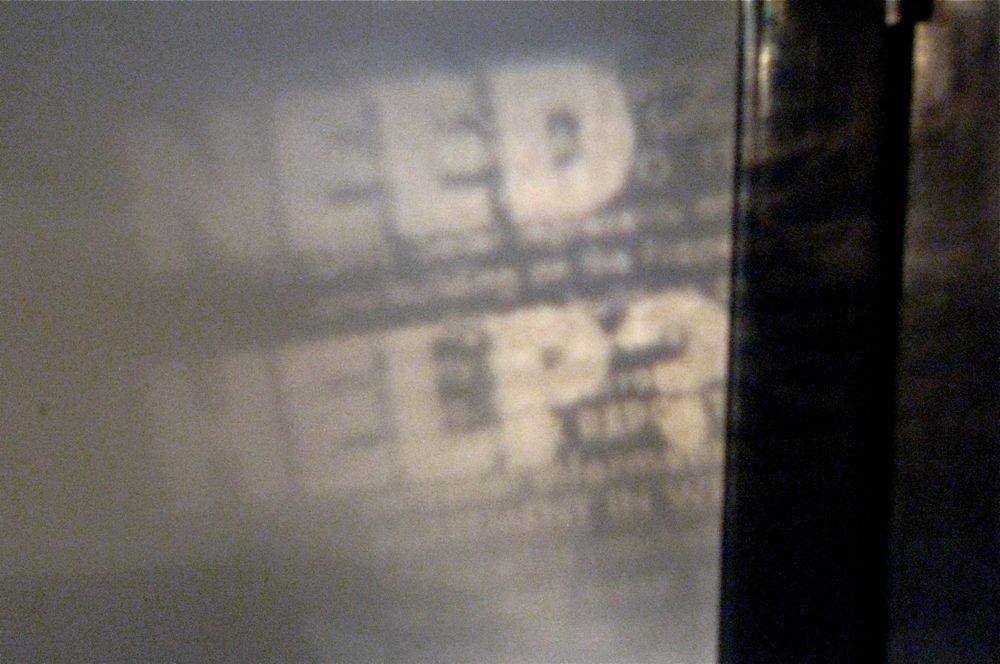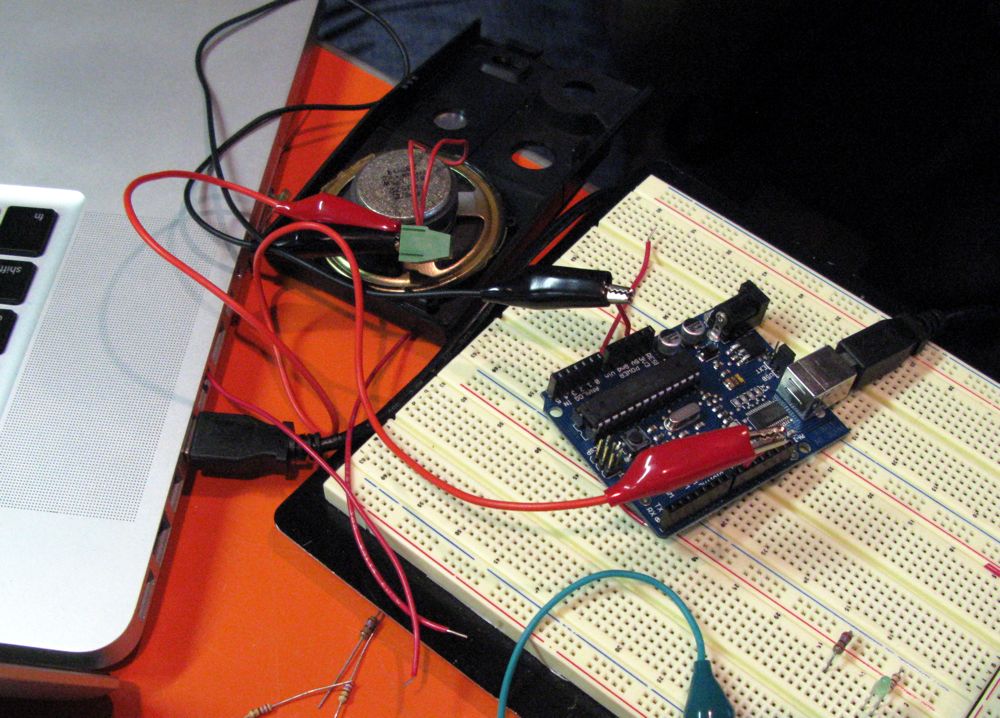Today was the first day of the Hacking as a Way of Knowing e-waste fabrication workshop. Above you can see the text from a fax thermal printer roll projected onto a wall. (At least I think that’s what it is.) Below is an Arduino connected to a a speaker. Stéfan has working on taking a RSS feed and triggering events so we can connect stuff to it to create cool stuff.
We got talking about why fabrication is taking off. Turkel has his lab. Matt Ratto at the Univerity of Toronto has a lab (with a great name – CriticalMaking.com. Some of the reasons are:
- There is a growing amount of electronic waste visible and available to be repurposed (and reminding us of how much we waste.)
- As manufacturing moves out of North America we respond by exploring micro and personal manufacturing through fabrication. It is possible that this is the future of manufacturing here.
- As manufacturing becomes so complex that we can’t imagine how everyday things are made, fabrication gives us a way of thinking about the making of what’s around us. It allows us to reappropriate the everyday.
- The costs of fabrication (tools and materials) have dropped to the point where it is a viable hobby. What will fabrication look like when it is not longer only for those with skills?
- We have what I call an “Ikea” effect where the labour and costs for certain items is shifting. Ikea moved part of assembly (the end assembly that takes relatively little skill) to the buyer by creating smarter hardware. They shifted engineering smarts to joining technology that could be used by anyone. Fabrication benefits from a shift in smarts so that assembly can doable.


Hi Geoffrey – thanks for the link to the critical making lab site. I really like your last point here, about new technologies opening up space for personal fabrication. I think things like the arduino and other open hardware tech and their related communities make it possible for people from a variety of perspectives, skill sets, and backgrounds to engage with technologies in novel ways and to take a more active role in forming our material environment. In my lab, for instance, we’re using the arduino (and hopefully, soon things like the reprap,) to explore the relationship between society and information technology and to do so in a way that links up material production with critical reflection. Hope to talk to you more about this soon!
Thanks for this interesting post! I have wondered, aside from my impending EE degree, what the attraction is to electronic devices and whatnot I see sitting on the side of the road. It also explains why I’ve got a pile of “trash” printers waiting to be disassembled and made into who-knows-what… Robots, CNC machines, or a full parts bin, it all appeals to me as something that ought not be thrown away. Hopefully I can help it live up to its potential! I’ll be reading!